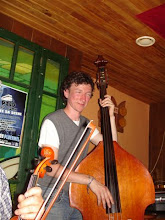
 2008, anniversary of May '68, forgetting the foundations and grounds of this thought-provoking period for academia, politicians, and the post-war generation, which lied somewhere between Budapest and Warsaw in the late 50s and early 60s... creating context also for the future changes of the 90s... Should we ask how generations, geographical zones, cultures and national schools have influenced the advancing sense of European hybridism?
2008, anniversary of May '68, forgetting the foundations and grounds of this thought-provoking period for academia, politicians, and the post-war generation, which lied somewhere between Budapest and Warsaw in the late 50s and early 60s... creating context also for the future changes of the 90s... Should we ask how generations, geographical zones, cultures and national schools have influenced the advancing sense of European hybridism?Today the forint is forgotten and the luring shadow of euro-visions dawn on the Hungarian market - changes which are already hugely affecting workers, students, and the advancing public opinion on such reforms. And so I heard a few weeks ago that Hungarians were taking to the streets again, blocking public transports... At a time - 18 years after the Wende, Wiedervereinigung, and liberation, can we still talk of a "sudden change"? - when movement is increasingly fragmented in countries and societies where rhythm at work seems to contradict rhythm 'at home'. Identity starts... in the waving colours of a national flag, in the booing and cheering of a street or a living room answering the echoes of a governmental speech or the results of a national team, in the blue eyes of a national hero, in the grey eyes of our grandmothers, in the blurred vision of a digital cam staring back at the airport terminal through the misty and humid cockpit window. Goodbyes of our time.
 On the week-end following the 8th of March, Hungary voted for a yes (three times) - "3 igen" - against the government, and 20% voted no against the referendum. Approximately 80% had 'decided against', by voting 'for it'. The majority reflected doubt and the current criticism of the government, thus leading to the national ordeal of the liberal and nationalist Fidesz party. Europe goes right by bits, giving mythical specters of a nation surviving an accident.
On the week-end following the 8th of March, Hungary voted for a yes (three times) - "3 igen" - against the government, and 20% voted no against the referendum. Approximately 80% had 'decided against', by voting 'for it'. The majority reflected doubt and the current criticism of the government, thus leading to the national ordeal of the liberal and nationalist Fidesz party. Europe goes right by bits, giving mythical specters of a nation surviving an accident."Un pas de coté pour la revolution", said Gébé (L'an 01):
One step aside for the revolution. Where are we standing now?
A crossroad. A street facing the parliament, the river Duna flowing in like a reminder of the country's geographical centrality, an empty street echoing the moaning of a renovated pub in which resonate the sound of a[nother] lost football game, finally the last street is but air, questions, breathing worries, imagined utopia and rationalism like one single bed-cover for the old family.
I now realise my first year in Hungary was the 50th celebration of the 1956 upheaval in Budapest. Two years later, the French 1968 lurks into the framework of souvenir, blurring vivid images of contestation in the hot, heavy, but maybe also snowy Hungarian spring of the year 2008.



No comments:
Post a Comment